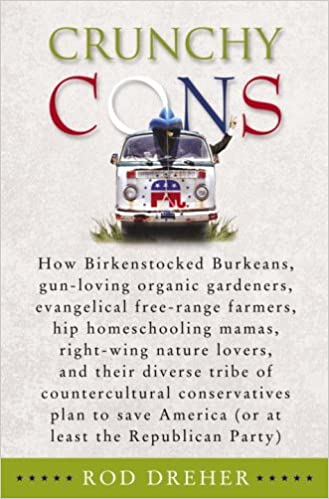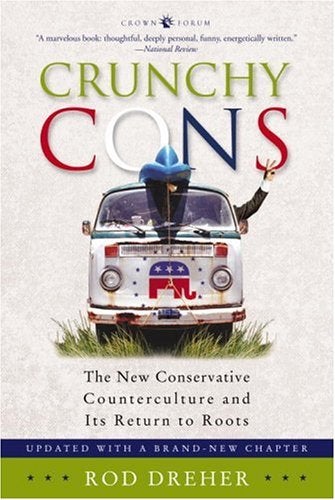What it means to me to be a conservative
Published 6:01 pm Monday, April 5, 2021
|
Getting your Trinity Audio player ready...
|
There are many mansions in the American conservative house, and some of them are old and funky and smell like a pot of organic mustard greens cooking down on the stove.
— Rod Dreher
I
t wasn’t until I was in my 40s that I started to think of myself as a conservative.
At heart, I had always been somewhat conservative, even in my 20s, when I called myself a democratic socialist. I’ve always met the dictionary’s criteria: I am prudent, moderate and cautious, resistant to change, “strongly favoring the established order.” In a word: traditional.
One writer who had a big influence on my thinking about conservatism 15 years ago was Rod Dreher, formerly of National Review and now an editor at The American Conservative. I discovered him about the same time I left the Democratic Party over its ideological rigidity, joined a traditional, liturgical church and become the managing editor of a daily newspaper that was resistant to change, as was its readership.
In the summer of 2016, I left the Republican Party because of its ideological rigidity and its hard-right turn from traditional, moderate conservatism to something like neofascism under Donald Trump.
Dreher’s book that introduced me to a different way of understanding this venerable mindset had a title that could have been its first chapter, “Crunchy Cons: How Birkenstocked Burkeans, Gun-loving Organic Gardeners, Evangelical Free-range Farmers, Hip Homeschooling Mamas, Right-wing Nature Lovers, and Their Diverse Tribe of Countercultural Conservatives Plan to Save America (or at Least the Republican Party).”
Crunchy (earthy) conservatism, Dreher explained, is not a political program, but rather a “practical sensibility” based on what the wisdom of tradition teaches is best for families and communities.
It is about conserving those things that are good and true.
When I read the book again 10 years after it was written, I was struck by how much our society had changed for better or worse. What a different time it was.
In 2006, when the first edition the book was published, George W. Bush was president, Pope John Paul II had been succeeded by the even more orthodox Benedict XVI, and a majority of Americans identified as Christians. We were engaged in costly wars in Iraq and Afghanistan, Hurricane Katrina demonstrated how inept big government could be, the housing market was soaring, fueled by bad loan practices, and almost no one could foresee the financial meltdown that was coming.
I’m convinced that if the Republican Party had gone in the traditional conservative direction Dreher suggested, rather than toward libertarianism and populist authoritarianism, it would have been able to compete with the Democratic Party for the hearts and minds of younger Americans and people of color.
Dreher’s crunchy conservatism was simply traditional Burkean conservatism for a new generation.
Edmund Burke, an 18th century Dubliner who is remembered for opposing the French Revolution and rejecting abstract Enlightenment reason and “natural law” as guiding lights, is the father of modern conservatism. All of us, Burke wrote, are influenced by our cultural traditions, and while individual liberty is important, community is no less so. We belong to one another, and that affects who were are.
Burke wrote that the individual is foolish, but the species is wise. We must learn from those who have gone before us and not rely solely on ourselves. And we must rely on the greater wisdom of God as handed down through the ages to those to whom he chose to reveal his will.
Contemporary liberalism and conservatism are both essentially materialistic, Dreher argues, and we should not be surprised that neither has led to the improvement of our national character. He describes his book as a rebuke to both the economic individualism of the right and the moral individualism of the left. Its purpose is to explore ways to live out conservative values in a culture that seeks to separate us from our values, our families, our communities.
In less than 250 pages, “Crunchy Cons” uses Dreher’s own experiences as well as those of people across the country who lived essentially countercultural lives that were socially, spiritually and physically healthier than the ways of the dominant culture. He looked at organic farming and the slow food movement, new urban planning, walkable neighborhoods and aesthetically pleasing architectural design such as the bungalow, the attraction of traditional and liturgical Christianity to a generation bored with the irrelevance of “relevant” contemporary worship, and the knowledge that conservation of natural resources is at the heart of conservatism.
“Crunchy Cons” was not a bestseller and is now out of print. A generation from now, it won’t make a list of the most influential conservative tomes, like William F. Buckley’s “God and Man at Yale” or Russell Kirk’s “The Conservative Mind.” But more than probably any other book of its era, it made me into a conservative and helped me to see that I had been one all along. It stirred my imagination and helped me envision a better future by looking to the past.








